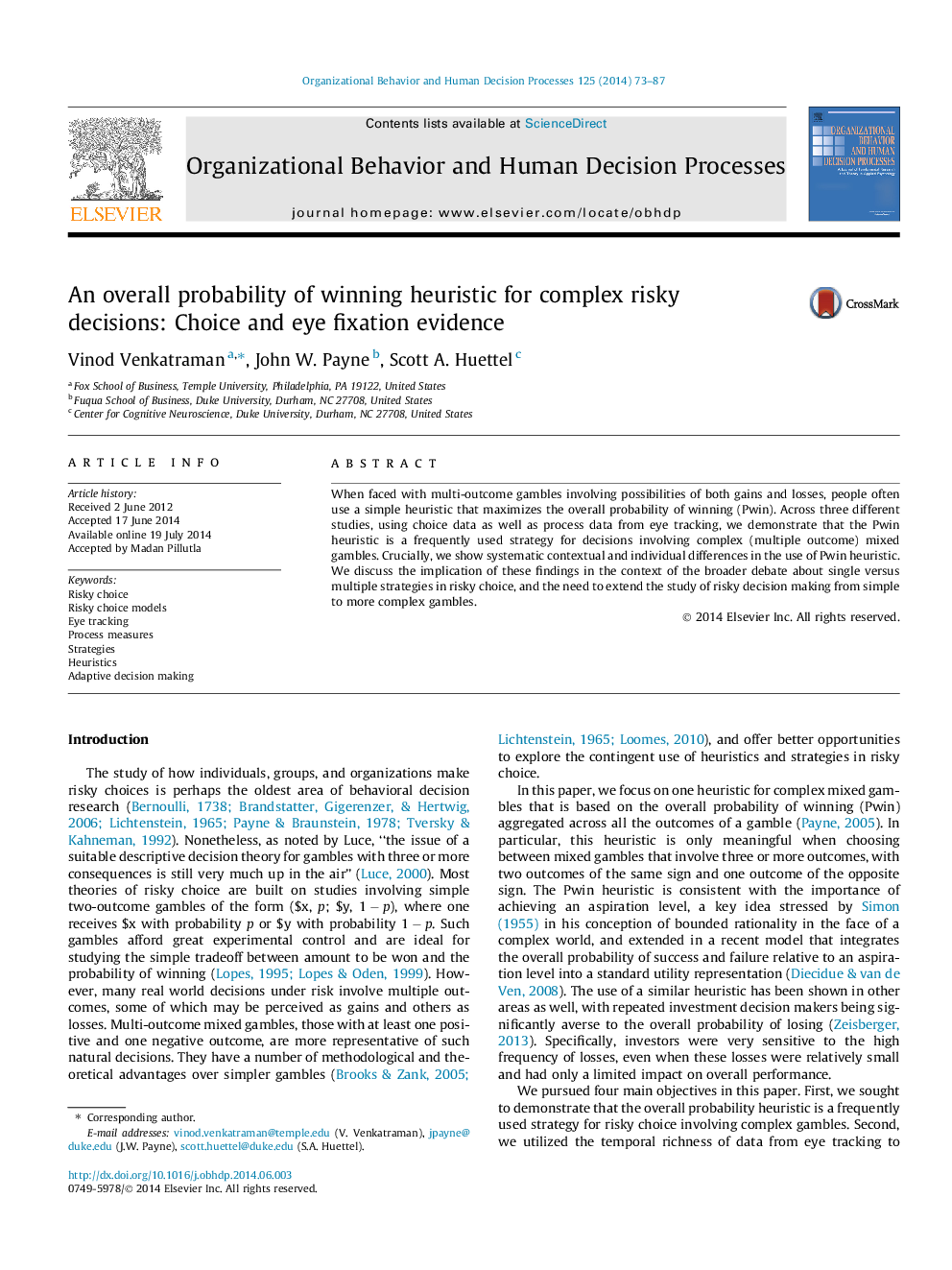| Article ID | Journal | Published Year | Pages | File Type |
|---|---|---|---|---|
| 888532 | Organizational Behavior and Human Decision Processes | 2014 | 15 Pages |
•People maximize the overall probability of winning when faced with complex gambles.•Information processing and choice differs across decision contexts.•Pre-decisional eye-tracking data predicts choice on individual decision problems.•Findings are more consistent with the use of multiple strategies in risky choice.
When faced with multi-outcome gambles involving possibilities of both gains and losses, people often use a simple heuristic that maximizes the overall probability of winning (Pwin). Across three different studies, using choice data as well as process data from eye tracking, we demonstrate that the Pwin heuristic is a frequently used strategy for decisions involving complex (multiple outcome) mixed gambles. Crucially, we show systematic contextual and individual differences in the use of Pwin heuristic. We discuss the implication of these findings in the context of the broader debate about single versus multiple strategies in risky choice, and the need to extend the study of risky decision making from simple to more complex gambles.
